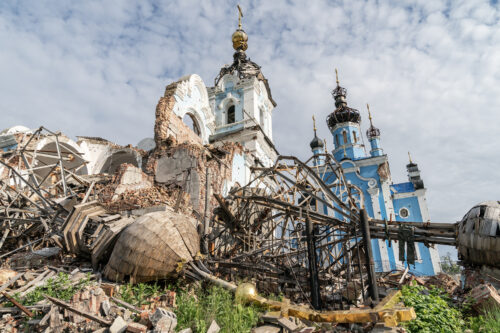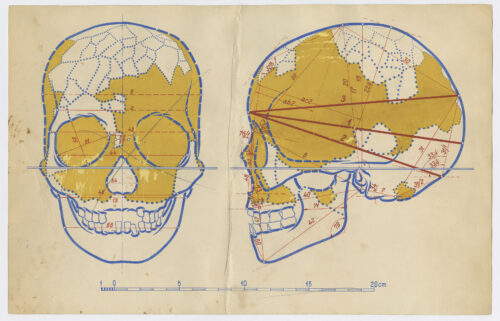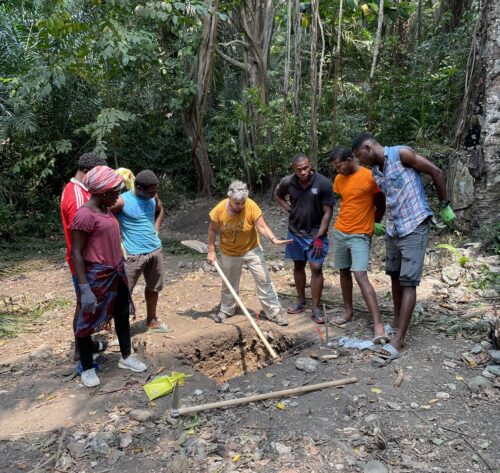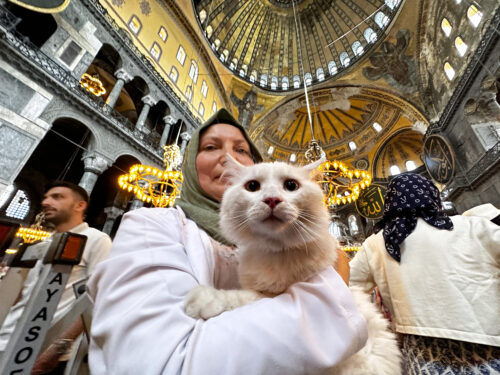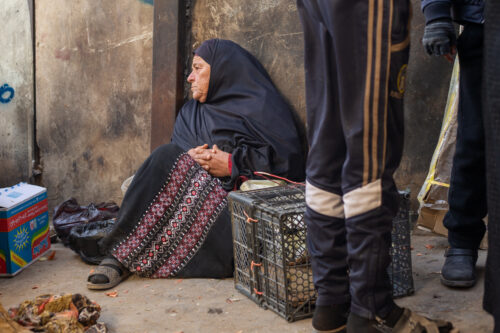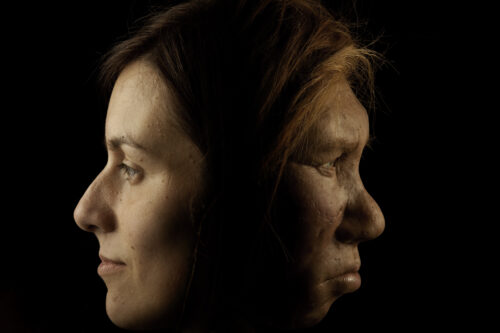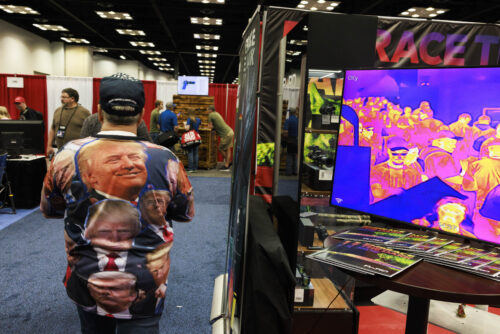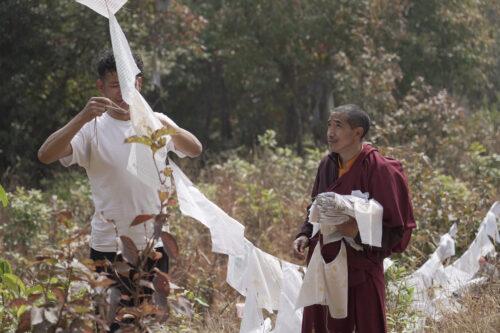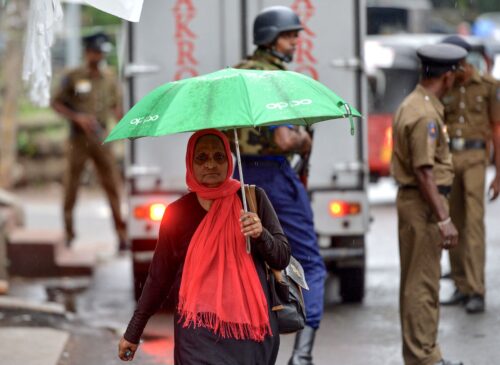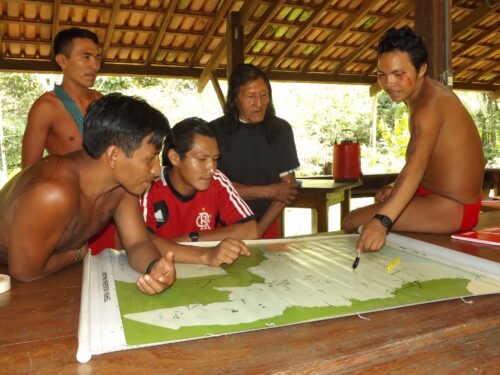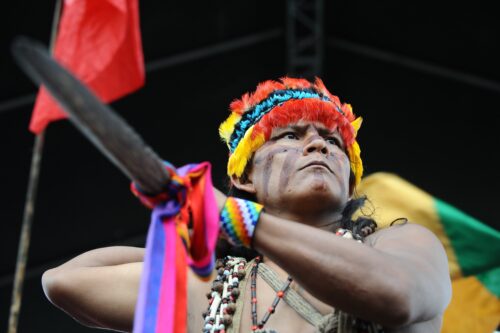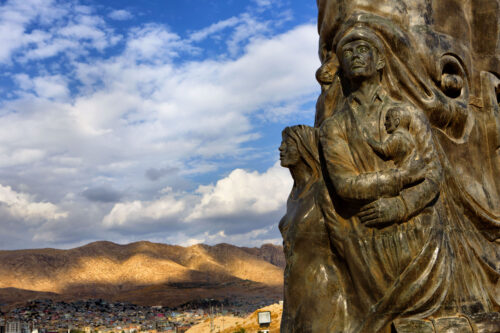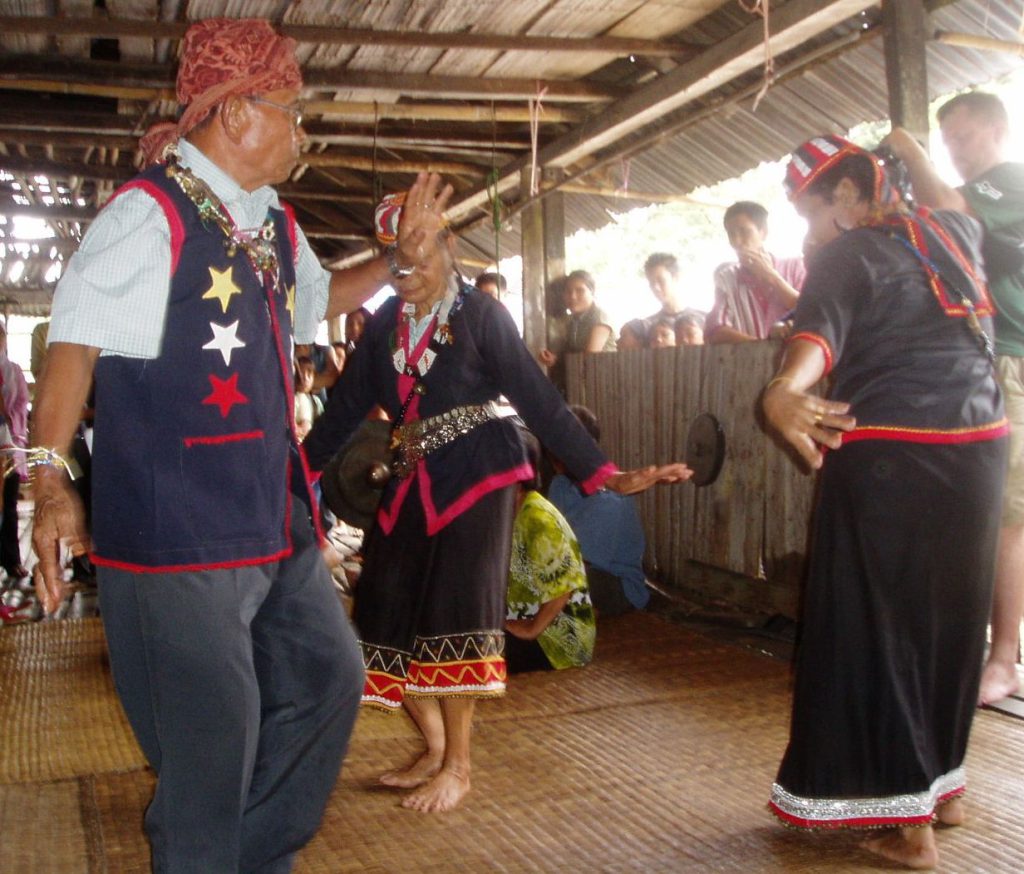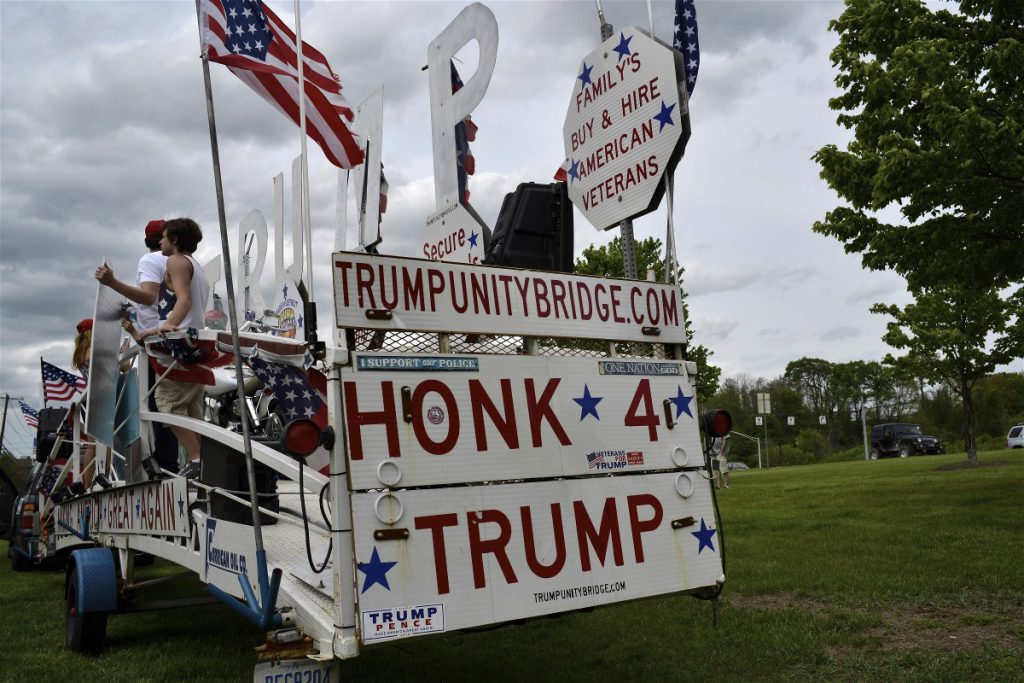What Religious Beliefs Reveal About Post-Truth Politics
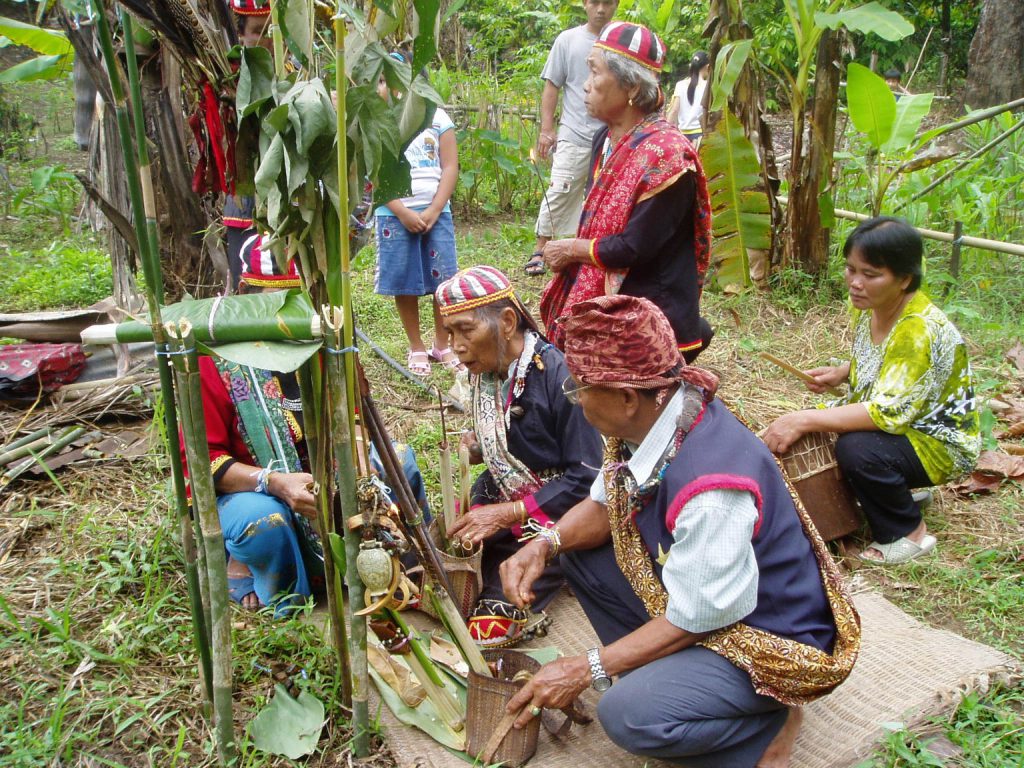
When I did my doctoral fieldwork in a rural Bidayuh community in Malaysian Borneo in 2004 and 2005, the village was coming to the end of a long period of religious change. Most inhabitants were Christian, but there remained a small and increasingly frail clutch of elderly people who continued to practice the old rituals, gawai. Built around the rice-planting year, gawai is basically a system of managing relations with a range of spirits—among them the rice spirit, ancestral spirits, and a motley collection of benevolent or malicious spiritual beings. Rituals are always merry affairs, with lengthy chanting sessions, music, dancing, and plenty of food and drink. Like humans, spirits are, after all, more pliable when they’re having a good time.
Late one evening, toward the end of a long gawai ritual, I began chatting with a close Catholic friend. Like many other villagers, she’d come to watch the proceedings and support the practitioners—a common gesture of care and respect that most Christians greatly valued. In fact, older villagers would often spend the night on the longhouse veranda after rituals, just to keep their friends, the elderly practitioners, company.
As the chants faded and the crowd dissipated, I asked my friend if she too was going to sleep at the longhouse. No, she replied, she didn’t want to chance it. She explained that by the time people gathered there, the veranda would be filled with spirits who might “disturb” Christians because “we don’t believe in them.” At first, her answer confused me. Surely not believing in the old spirits meant not accepting that they were real. And if Christians didn’t think the spirits were real, why should they be afraid of them?
As I discussed this further with my friend in the following days, I realized that her statement was not as contradictory as it seemed. For her, belief had nothing to do with whether the old spirits existed—everyone took it for granted that they did. Rather, believing in them meant praying to, acknowledging, and generally interacting with them through ritual and other activities. It meant binding oneself to an ongoing relationship built on trust, respect, and mutual obligation. One’s conversion to Christianity, on the other hand, necessitated rejecting that relationship. No surprise, then, that some spirits might be a little peeved.
The confusion that I experienced in my field site that night reflected a long-standing tension between the two main connotations of the English term “belief”: “belief that” and “belief in.” The first is propositional—that is, it advances a claim that is either true or false. So believing that Jesus is the Son of God or that gawai spirits exist means accepting that an idea or statement is true. Conversely, the second is more about conviction and commitment: To believe in Jesus or in gawai spirits is to place one’s trust and loyalty in them, and to take on the responsibilities and expectations that come with that relationship.
This dual notion of belief is familiar to anthropologists of religion, many of whom have described similar phenomena around the world. But in recent months, I’ve wondered what light such insights can shed on an ostensibly unrelated arena: the contemporary “post-truth” political moment. More specifically, I’ve wondered how anthropological analyses of belief can help tackle a question that currently vexes governments, pundits, and ordinary individuals alike: Why do people make the political choices that they do?
In a lot of current thought, “post-truth politics” denotes a kind of politics that is not grounded in facts (read: truth), and that distorts and even fabricates reality in order to persuade people—and sometimes incite them to take a particular course of action. The power of post-truth claims to effect political outcomes has been widely debated by analysts over the past year. Many critics argue that such seismic events as the Brexit vote and Donald Trump’s ascent to the U.S. presidency were due in no small part to the persuasiveness of the victors’ false assertions. These arguments build on the assumption that people think, vote, and mobilize in certain ways because of what they believe—or rather, are led to believe by politicians and the media.
A common response to this perceived assault on facts has been to double down on their defense: through insistent fact-checking, “calling bullshit,” holding politicians to account for their claims, and cracking down on “fake news,” among other things. All these are efforts to haul truth back into a political domain that is increasingly seen by critics of post-truth politics as being shaped by emotion and ideology rather than by evidence and reason. According to the logic that underpins such responses, one set of messages (for example, bogus allegations) can be combatted by another (such as objective analysis). Reveal the truth, it’s implied, and voters will react accordingly.
In reality, however, things are often more complicated. As we’ve seen in recent months, voters may continue supporting a politician even if they don’t agree with what that politician says or even if a politician’s claims are shown to be false. Conversely, as Hillary Clinton and the experts who cautioned against Brexit found, having a firmer grasp of the facts may not always be enough to convince voters to place their trust in you.
These examples suggest that asking what people believe can only tell us so much about why they make the political decisions that they do. To find a more complete answer to this question, we need to look beyond the basic question of whether people believe that X, Y, or Z is true. And it’s here that the second notion of belief —“belief in”—comes in useful.
As I found in my field site, asking whether and how people believe in something doesn’t simply mean asking whether they think it’s real or true. Rather, it means looking beyond the propositional content (the claims and arguments) of specific messages toward the relationships (actual and perceived, mutual and one-sided) that surround them. It means asking, for example, how voters view their relationship with a particular candidate or party: Do they see it as a pact between defenders of the same values? A form of dependency or patronage? A necessary compromise? What will voters commit to this relationship, and what do they expect in return?
On another level, and in keeping with an earlier definition of post-truth politics, we might ask how voters’ social, familial, professional, and other relationships influence the way they think, act, and mobilize: How do such bonds influence their responses to political messages? How, indeed, might voting be construed as a means of acting with or against another party? Finally, we might also ask about what happens when things go wrong or don’t quite stack up: How much are voters willing to overlook or downplay certain facts or claims for the sake of a political alliance? If a relationship is tested, how far can it stretch? What might it take to break voters’ commitment to or trust in a particular relationship?
These questions aren’t just part of an abstract thought experiment. Over the past year, they’ve been asked with increasing urgency in two of the places post-truth politics have hit the hardest: Britain and the United States. Collectively, these questions highlight a vital point: Facts, beliefs, lies, ideas, and so forth don’t exist in a vacuum. They are always embedded in larger networks of social relations, and the extent to which their propositional content gets absorbed, downplayed, criticized, or indeed ignored very much depends on how they intersect with these networks. As I found in Borneo, sometimes it’s not what people believe but how they believe in things (or people) that ultimately makes the difference.
There’s a lot more to politics than truths and untruths.
Where, then, does this leave the matter of post-truth politics? The fact that politics, like belief, is always wrapped up in specific relations is a pretty basic anthropological point. But it’s one that we would be wise to keep in mind as reactions to post-truth politics grow louder and ever more insistently focused on facts. It reminds us that there’s a lot more to politics than truths and untruths—as there always has been—just as there’s a lot more to voters’ decisions than politics, narrowly defined.
To tackle the very real problems posed by post-truth politics, it’s not enough to focus on the propositional content of political messages. Just as asking whether Bidayuhs believed that the old spirits existed got me nowhere, brandishing the facts can only take the anti-post-truth response so far. What is required is a renewed commitment to understanding the relational contexts—right- and left-wing, conservative and liberal—in which such politics thrive. Trying to understand these contexts means taking seriously the often surprising power of relations and allegiances to shape reality, whether in a small village in Borneo or in one of the world’s largest, richest nations. As such relations remind us, the battle to lift politics from today’s post-truth mire has to be waged with far more than just the facts.

